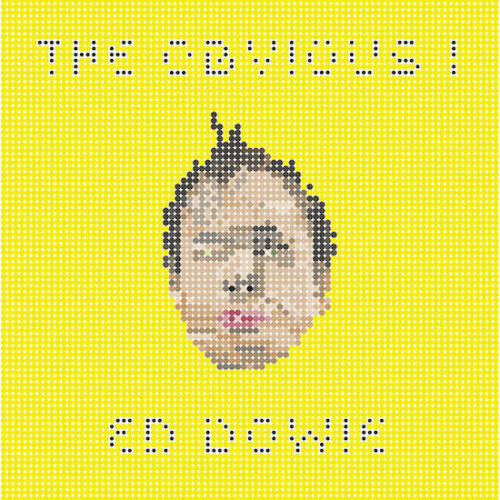If you’re looking for an excuse to buy that new set of fancy headphones, Ed Dowie has just given you a really good one. The sonic detail on display in this blossoming petal of a record deserves the very best entry into your ears. Dowie quit the pop game to study experimental music following his stint with turn-of-the-Millenium indie boffins Brothers In Sound. As on his debut, 2017’s The Uncle Sold, the extra swotting benefits us all. The snap of a digital snare vibrates out from the back of your head and seems to ripple gently across the room. Synth lines, aeroplanes, and creaking furniture drift across your ears; strings and guitars thrum somewhere over in a distant corner of your house, sneaking in to briefly add colour and shade to this or that passage. It’s quite something.
Dowie’s secret is the mingling of the genuine oddball, experimental and ambient with proper pop instincts and a well-sharpened taste that appreciates clean, uncluttered spaces. His kitchen is presumably immaculate.
The three factors at play here – the pop, the ambient, and the tasteful – all act as counters to one another, meaning the record never gets too big or too small for its boots. The nagging little hooks are necessary to stop Dowie’s feather-light vocals from drifting aimlessly and floating away. The urgent orchestral thrumming in ‘Then Send Them’, the quirksome pentatonic riff that decorates ‘Red Stone’, the stacked choral voices that lead the record’s most pastoral refrain on the title track, the queasy Mark Ribot-ish guitar refrain on ‘How Light I’, these are all anchor points that tether The Obvious I to the mortal world. It’s what stops the record sounding like Sigur Rós playing on the other side of a wall.
Meanwhile, the splashy sunshine of a ride cymbal and swishy synth on ‘Dear Florence’ and the distant strings drifting in on the wind against the burbling keys of the beautiful ‘Number Eight Wire’ add another dimension to Dowie’s more pedestrian tendencies, dragging them into 3D. Dowie was a chorister as a child and has retained a beautiful, unearthly voice that drifts gently up to the heavens, doubled and tripled in some lovely, if repetitive, harmonies. But a beautiful voice alone wouldn’t elevate these songs enough: that exceptional sonic pallet, somewhere between Brian Eno, Phillip Glass, and Vangelis, injects the sacred into the potentially mundane. It’s a record that’s more than the sum of its parts.
That taste-level is at once Dowie’s greatest asset and the biggest problem here. It’s very easy for an artist with such an obviously well-stocked larder to throw the entire plate of spaghetti at the wall – meatballs, sauce, and all – and see what sticks. Dowie’s minimalist instincts temper those potential excesses. The Obvious I never swings for the fences and misses, never over-reaches, and doesn’t outstay its welcome. It’s sculpted and contoured to within an inch of its life.
At the same time, such admirable restraint occasionally stops the record from living up to its promise. ‘Dear Florence’ could soar into something huge and stirring but is content to stay modest, even meek. Closer, ‘Robot Joy Army’ grows some teeth but never has the conviction to truly sink them into anything. There’s darkness here and there, but it’s never properly embraced, meaning Dowie doesn’t quite fulfill the potential of his excellent lyrics. A line as good as “I am not to be taken alive” deserves more conviction than it’s given, and his repetitive vocal lines deflect attention away from, instead of toward, his words.
Still, what The Obvious I does right, it does beautifully. There’s a melding of real texture and robust melody here, working in perfect unison. Though you may wish for the odd scribble, stain or bite mark, there’s plenty here to enjoy. It’s rare that playing it so safe sounds this good.



